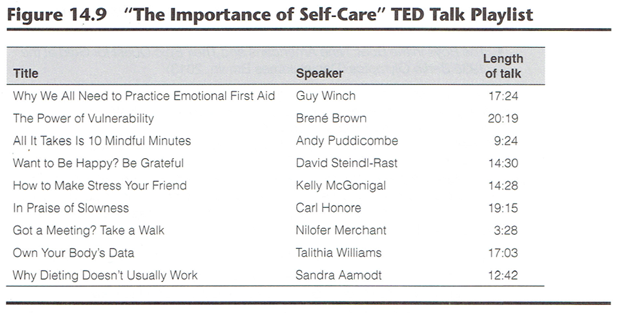|
By: Wade Gilbert Originally Published in: Coaching Better Every Season Provided by: Human Kinetics The long and late hours kept by many coaches often causes great strain on personal relationships. Unfortunately, many coaches realize too late that they have neglected to spend sufficient time with family and friends while pursuing their coaching goals. Even when coaches are physically present with family and friends, their minds are frequently on coaching because they are so emotionally invested in their work. Coaching isn't something you can easily turn off. It's a lesson I want to share with all coaches out there. It doesn't matter how much success you have in your career; if you fail at home you are a failure. We only get one shot to be a parent and spouse, and we must give it everything we've got and commit to our "team" at home. When I return to coaching, I will be just as committed to the football team, but I will do a better job of committing to my home team. It's possible to do both. You just have to make it a priority. Coaches commonly set aside one to two weeks of family vacation time during the off-season as a way to refresh and counter-balance the stress of a competitive season. However, research shows that the recovery benefits of a few weeks away from coaching are short lived." A more effective strategy for long-term well-being is to schedule additional regular small doses of dedicated family and friend time. Setting aside more time for family and friends may not be realistic for some coaches, but they can use some simple evidence-based strategies to increase the quality of time spent with family and friends. For example, making it a priority to eat together as a family a few times per week will reap many rewards for busy coaches and their families. Eating a regular meal together as a family is associated with a whole host of benefits for kids: higher academic achievement, lower stress, more positive outlook on life, better relationships with parents, better ability to cope with challenges, and fewer misbehaviors at home and at school. But these benefits of eating together as a family will not be realized if the family is preoccupied during the meal with watching television or checking their smartphones. The value of eating meals together comes from dedicated time, however brief, for sharing stories and listening to each other with full focus and attention. Coaches often use the off-season to attend coaching clinics and refresher courses or to coach at camps or special events, which means more time away from family and friends. This kind of schedule can add even more tension to already strained relationships. When possible, coaches should consider combining these important career opportunities with family vacation time. For example, successful coaches such as ice hockey coach Mike Babcock and basketball coach Mike Krzyzewski learned to balance special off-season coaching opportunities, such as coaching at the Olympic Games or world championships, with family time by bringing their families with them to some of these events. Coach Mike Babcock believes that being able to share the Olympic experience with his family was key to helping him, his coaching staff, and his athletes stay emotionally balanced and perform at their peak. Sharing the Olympic experience with family enriched it beyond belief. Being with our families helped keep us fresh and loose. I think being able to share the bigger Olympic experience with our families, changing up our focus, helped us win the gold. A distraction? No way. A different focus, a change of pace? Yes. Moments to remember? For sure. A typical high school or college coach might be able to bring family or friends along to a coaching clinic and set aside a few extra days either before or after the clinic to focus on enjoying the trip. This strategy can work if coaches clearly communicate the responsibilities and commitments they will have during the coaching event before the trip happens. Also, taking family or friends along on off-season coaching trips works best when it supplements, rather than replaces, dedicated family vacation time.
To create work-life balance, coaches must first take care of themselves. Being selfish for at least a few moments each day is OK. In fact, being a little selfish is required if you want to sustain your energy as a coach and nurture meaningful relationships with others. If you aren't centered and healthy as a coach, then this The off-season is an ideal time to take steps toward creating a better balance in your life and practicing self-care strategies. A good place to start is to watch the short videos on the "Importance of Self-Care" TED Talk playlist (see figure 14.9).56 These talks cover a wide range of important topics - such as using stress to your advantage, the power of slowing down, and ways of practicing emotional first aid - that can help coaches recharge and find healthy ways to achieve work-life balance. An important step in creating work-life balance is gaining a broader perspective on the challenges you face. Reading stories about how others overcame adversity in their life is inspiring and helps us view our own stressors from a healthier viewpoint. Many coaches I have worked with find great value in reading these types of personal redemption stories, and they often use the stories to teach important life lessons to their athletes. Some examples of books that championship coaches and I have found particularly inspiring include the following:
Other proven strategies for improving work-life balance include making priority lists, delegating some responsibilities to others, working on tasks you've been avoiding, and writing a personal creed. Coaches have a tendency to want to control everything, but that approach is a recipe for burnout and frustration. Successful coaches follow the widely cited advice of leadership guru Steven Covey and prioritize by putting first things first. Everything that you need and want to do, in both your work life and your personal life, is not equally important and urgent. A simple matrix has been created to organize tasks into one of four categories.
Many tools are available, including free apps such as Priority Matrix (www. appfluence.com), to help coaches prioritize their time and create work-life balance based on this putting-first-things-first matrix. Delegating some of the less urgent, or less critical, coaching responsibilities is an effective way for coaches to improve their ability to find work-life balance. The possibility of using this strategy reinforces the importance of surrounding yourself with trusted assistants and supportive colleagues and friends. Coaches may have a tendency to avoid tackling some of the less urgent or less critical items on their to-do lists. A good strategy for making progress on these activities is to set aside a few minutes each day, even just 10 to 15 minutes, to work on a task you have been avoiding. While working on the task, practice your mindfulness skills, and you will notice that the time passes more quickly. Making small, incremental progress on these tasks will give coaches a sense of personal satisfaction while helping them learn to tolerate some of the mundane but necessary coaching and personal life responsibilities.' Finally, successful coaches have long recognized the value of writing a personal creed to help them stay grounded and ensure that they invest time daily in the things that will sustain their well-being. A personal creed provides a blueprint for daily work-life balance. But as legendary coach John Wooden noted, a personal creed is more an ideal we can strive for than something we can expect to accomplish every single day. Coach Wooden used the following aphorism, adapted from the writings of John Newton (1725-1807), as a reminder of this important lesson. I am not what I ought to be, Not what I want to be, Not what I am going to be, But I am thankful that I am better than I used to be. Over many years of reflecting on coaching, teaching, and life, and the lessons he learned from his father, Coach Wooden created his own seven-point creed for finding work-life balance (see figure 14.10). A creed must have personal meaning, so although coach Wooden's creed worked for him, coaches should use his creed as a starting point for reflecting on what they want to include in their own creed.
|








